Search the Special Collections and Archives Portal
Search Results

Interview with Robert Martin "Doc" Campbell, Jr., March 12, 2005
Date
Archival Collection
Description
Text
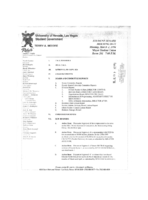
Meeting minutes for Consolidated Student Senate University of Nevada, Las Vegas, March 2, 1998
Date
Archival Collection
Description
Text
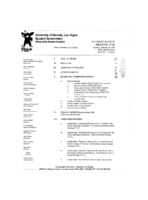
Meeting minutes for Consolidated Student Senate University of Nevada, Las Vegas, February 10, 1997
Date
Archival Collection
Description
Text
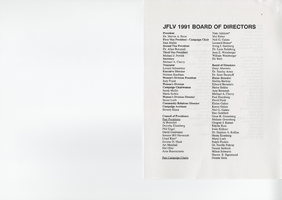
Jewish Federation correspondence, meeting minutes, and other records, item 41
Description
Annual report for the Jewish Federation of Las Vegas, January 1990-June 1991.
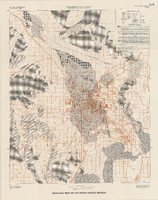
Geologic map of Las Vegas Valley, Nevada, 1982
Date
Description
2320-A. Originally published as plate 1 of Ground-water conditions in Las Vegas Valley, Clark County, Nevada. Part I. Hydrogeologic framework / by Russell W. Plume, published by the U.S. Geological Survey in 1989 as Water-supply paper 2320-A.
Image
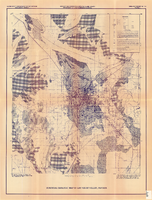
Surficial geologic map of Las Vegas Valley, Nevada, circa 1981
Date
Description
84-130. Originally published as plate 1 of Ground-water conditions in Las Vegas Valley, Clark County, Nevada. Part I. Hydrogeologic framework / by Russell W. Plume, published by the U.S. Geological Survey in 1984 as Open-file report 84-130.
Image
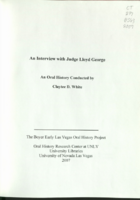
Transcript of interview with Judge Lloyd D. George by Claytee D. White, June 15, 2005
Date
Archival Collection
Description
Text
Alterwitz-Stralser, Deanne
Deanne Alterwitz-Stralser (née Friedman) was born January 1, 1931 in Hammond, Indiana, the daughter of an insurance salesman and a stay-at-home mom. Alterwitz-Stralser spent her childhood in Calumet City, just across the state line in Illinois, and was raised with a strong Jewish identity. At the age of sixteen, she met her husband, Oscar Alterwitz, at an Alpha Zadik Alpha (AZA) dance in Gary, Indiana, and the two were married in 1950.
Person
Fox, Jerry, 1937-
Jerry Fox (1937- ) is a Las Vegas, Nevada businessman who owned Foxy Dog restaurant, several gift shops, Lasting Memories camera company, and Vegas Threadz wholesale embroidery company. He was born December 29, 1937, to Abe and Ellena Fox in Los Angeles, California. The Fox family moved to Las Vegas in February 1955, where Abe opened Foxy’s Delicatessen, the city’s first Jewish deli. After graduating from Las Vegas High School in 1956, Jerry Fox worked at Foxy's Deli for about ten years.
Person
